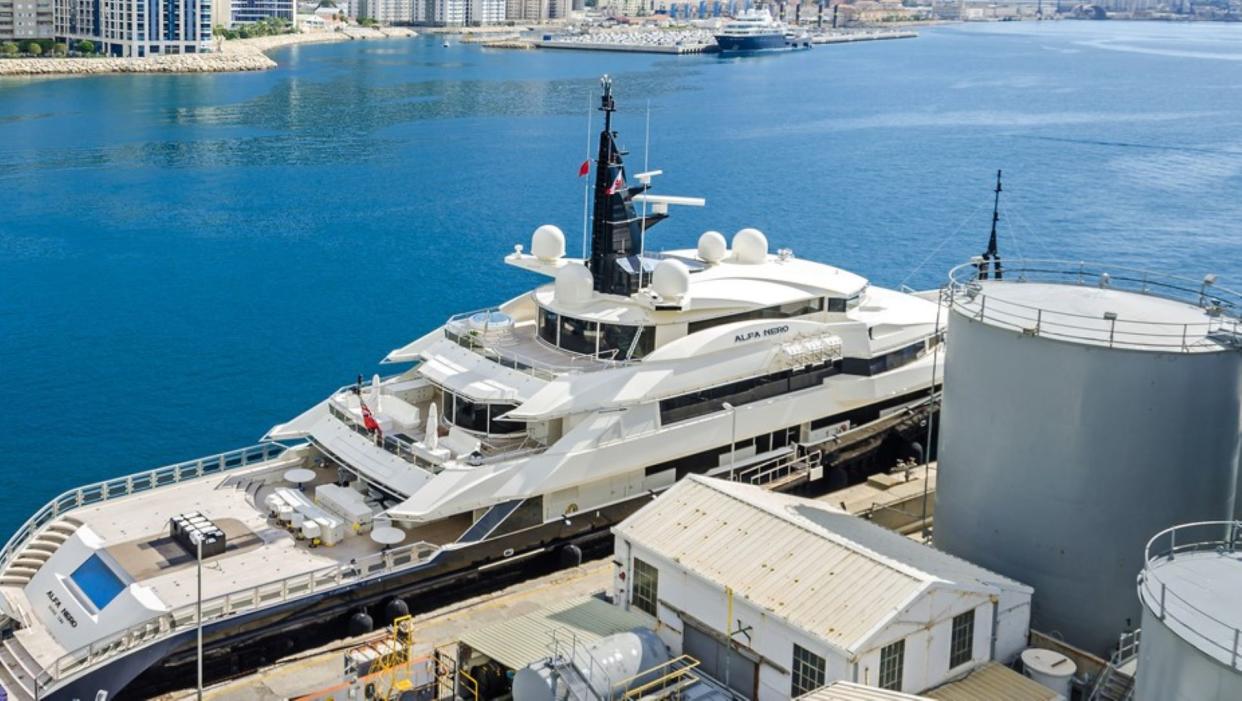Abandoned superyacht that burns $2,000 of fuel daily just to keep A/C running sparks outrage: ‘Who is paying?’

The superyachts of the super-rich are super problematic.
In a recent example, the abandoned Alfa Nero has been burning $2,000 daily to keep the air conditioning running.
In a recent post to the r/Anticonsumption subreddit, a Redditor wrote, “This popped up on my feed” above a picture and then reposted an article about the yacht’s excess. Below the picture, the OP wrote: “consume consume consume.”
“If it is abandoned, who is paying 2k each day?” asked another user.
As Jalopnik reports, the Alfa Nero was abandoned by a Russian oligarch, seized by Antigua, then sold to a former Google CEO, but that sale fell through earlier this month — leaving Antigua on the hook for the boat’s maintenance.
While the ship can’t sail, to maintain its hardwood floors and leather interiors, the air conditioning has to run 24/7 — meaning its diesel generators also have to run constantly. This leads the boat to burn through $2,000 of gas a day.
“You can’t even open the doors on Alfa Nero without diesel,” said Tom Paterson, the dockmaster at the Antigua Yacht Club. “These boats, from the day they launch to the day they die, are burning fossil fuels.”
Joe Fassler further writes for The New York Times that the super rich pollute far more than the rest of us — the wealthiest 1% create more than double the amount of planet-warming pollution as the bottom 50%, according to the Guardian — and luxury travel is one of the biggest parts of that footprint.
Fassler reports for the Times that more than 5,500 private boats worldwide are considered superyachts, and the 300 biggest of these create a combined 315,000 tons of carbon pollution annually.
While companies like Austria-based Silent-Yachts specialize in luxury solar-powered vessels, another solution is holding the uber-rich accountable for the impact of their lifestyles — something Disney heiress Abigail Disney did in a thread on X, formerly known as Twitter.
The Times points to a bigger issue of this behavior, as stated by cognitive scientists Nicolas Baumard and Coralie Chevallier in Le Monde last year, who said people may stop trying to reduce their pollution footprint when others are not doing their part.
“If some people are allowed to emit 10 times as much carbon for their comfort,” Baumard and Chevallier asked, as quoted in The New York Times, “then why restrict your meat consumption, turn down your thermostat or limit your purchases of new products?”
As to more altruistic ways these billionaires could spend their money, one commenter on the Jalopnik article said astutely, “Isn’t there a seabed out there somewhere in need of a reef?”
Join our free newsletter for cool news and actionable info that makes it easy to help yourself while helping the planet.

